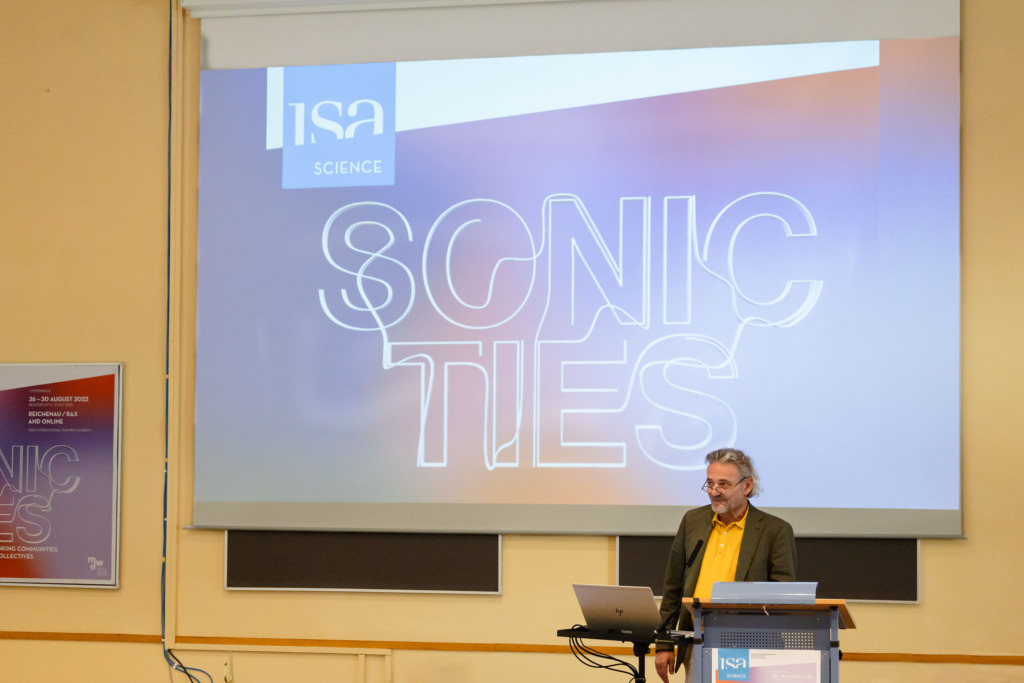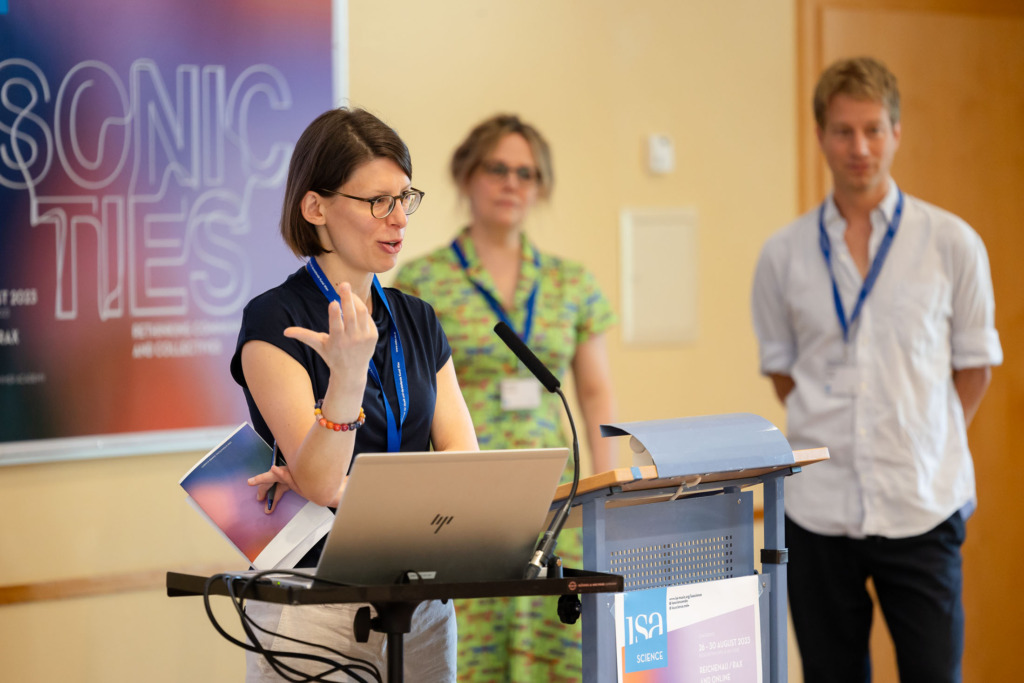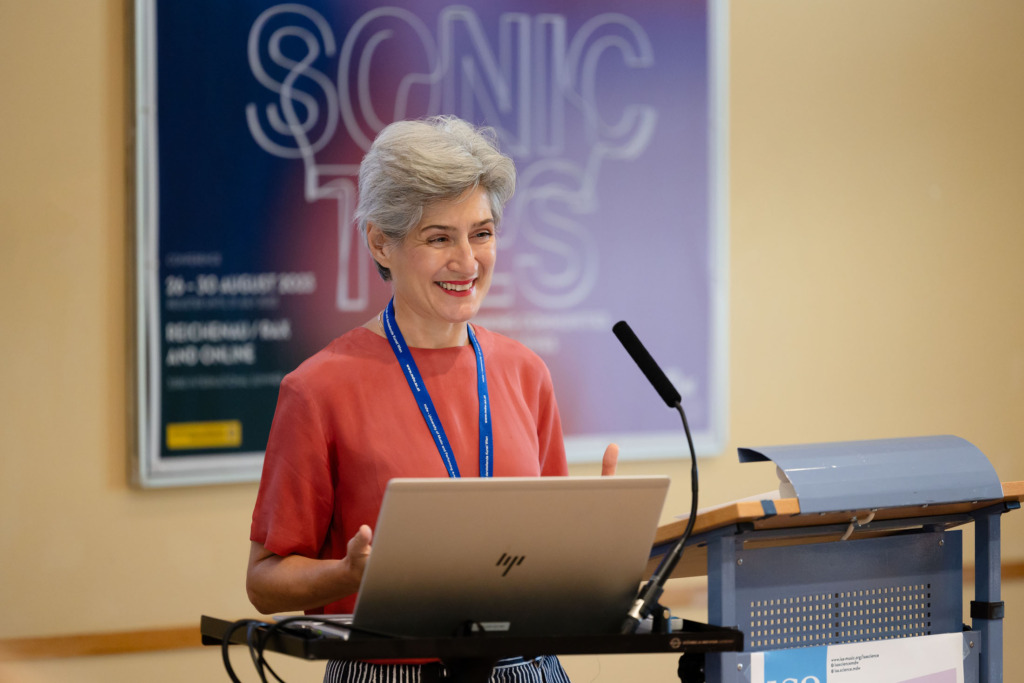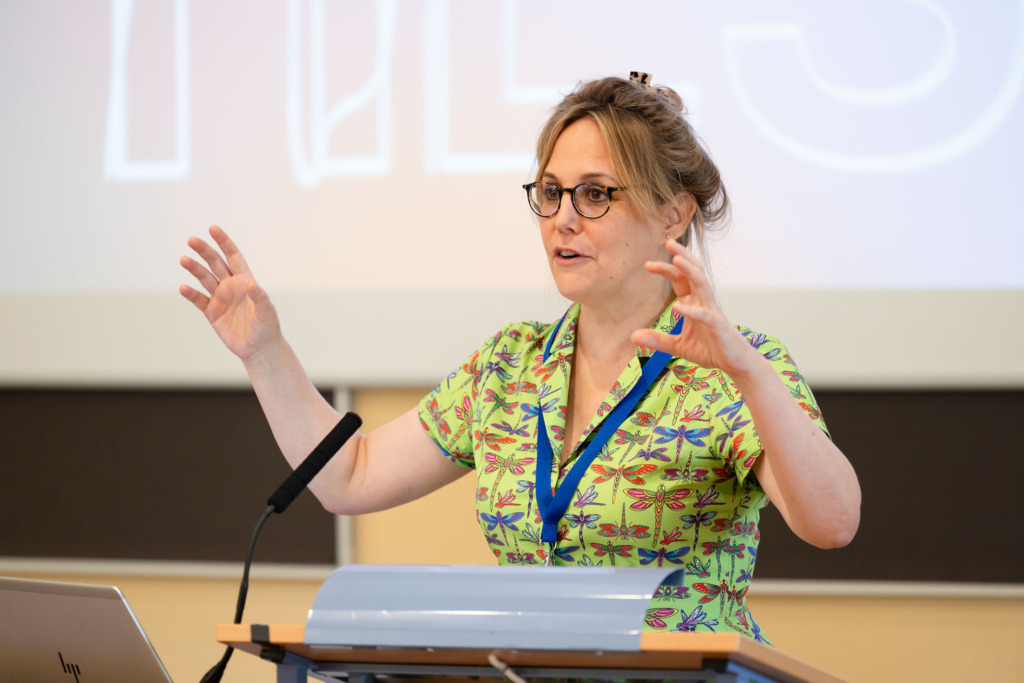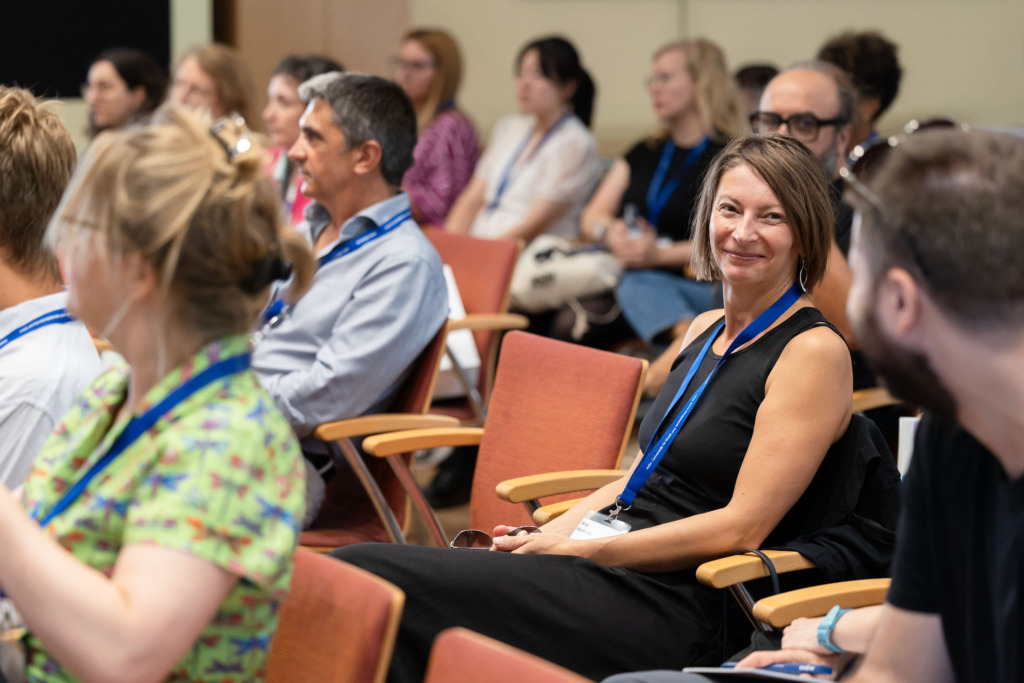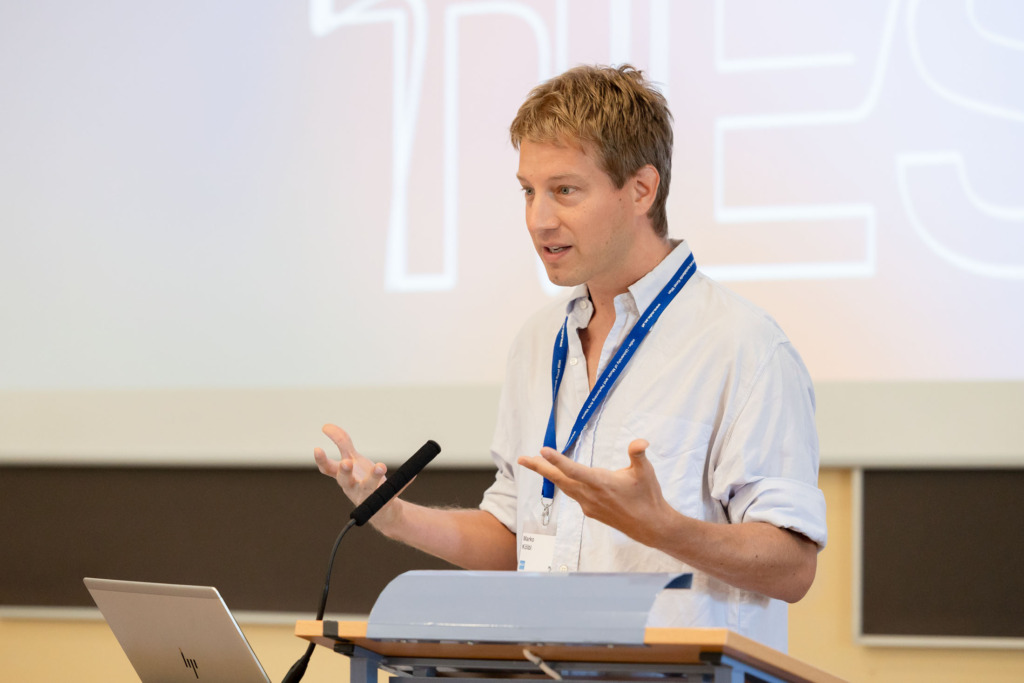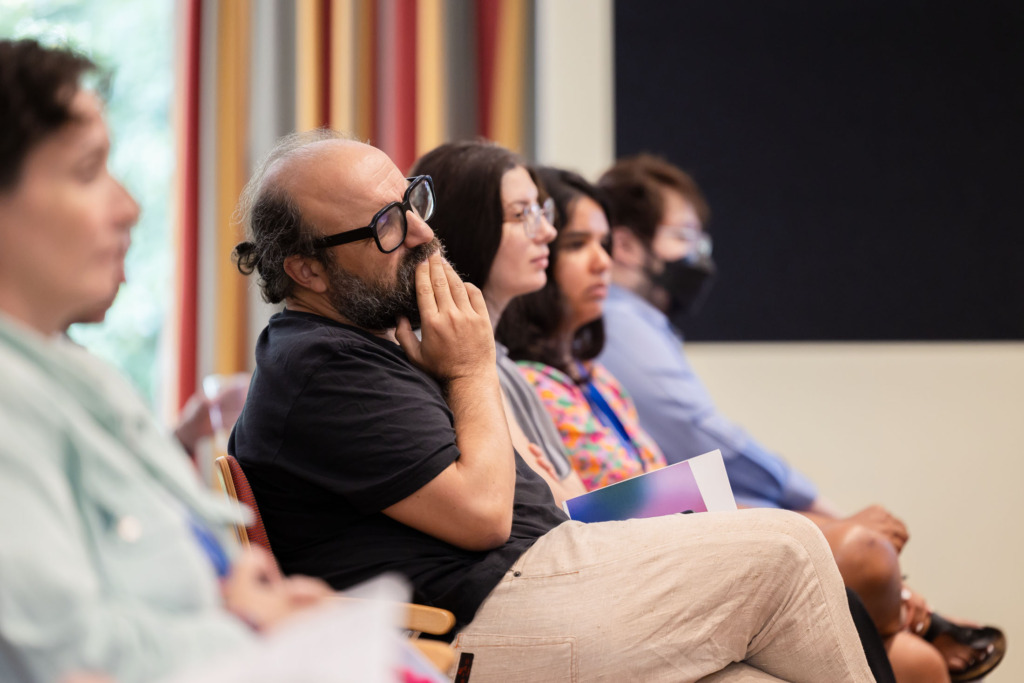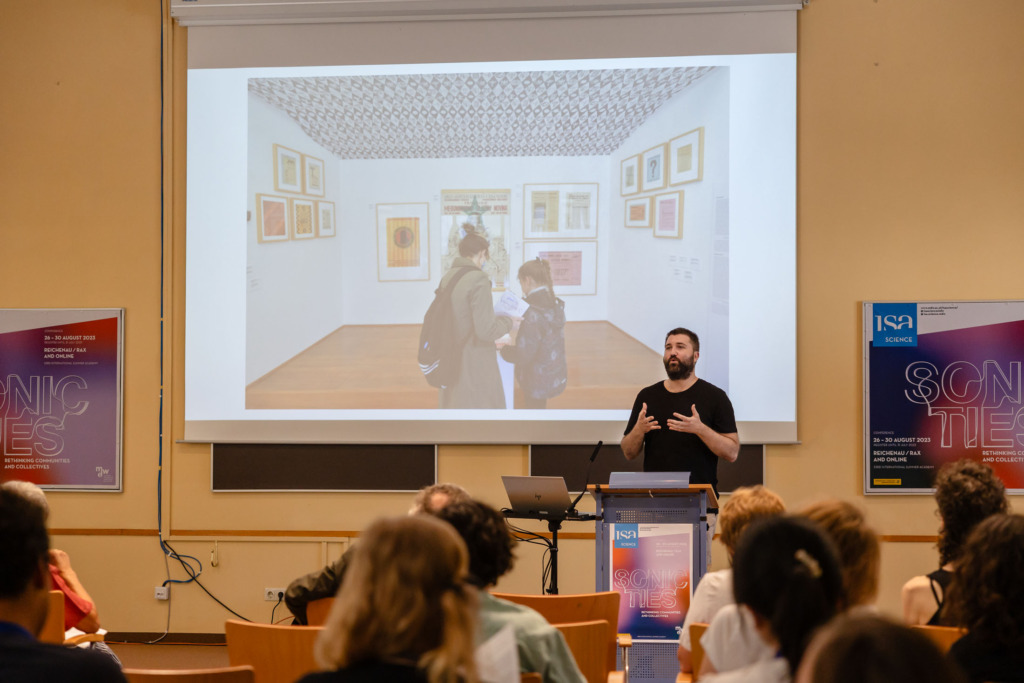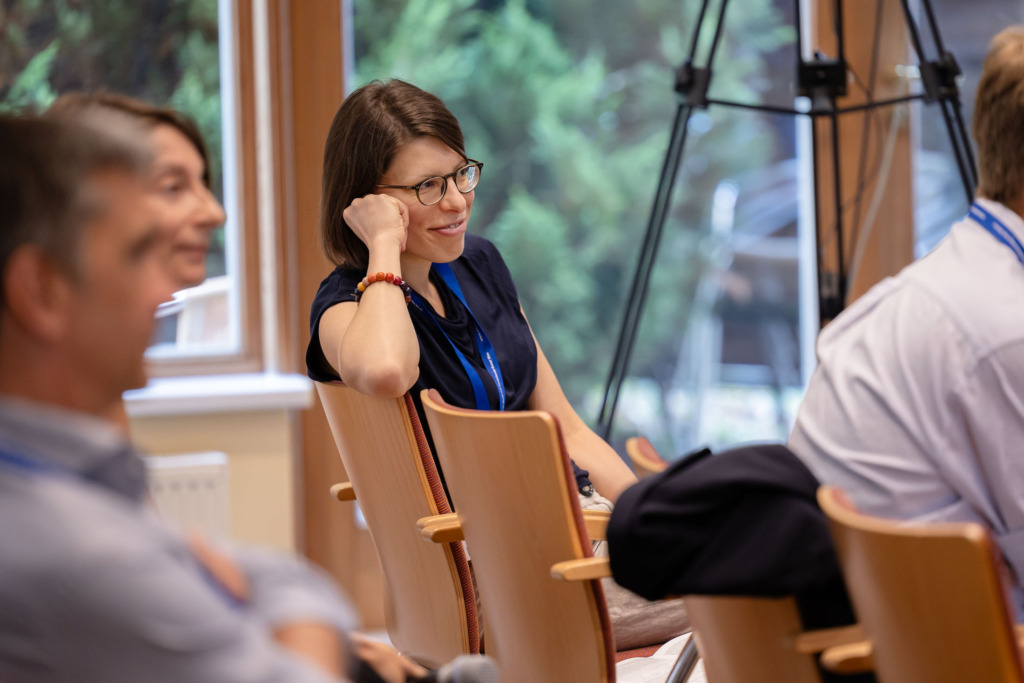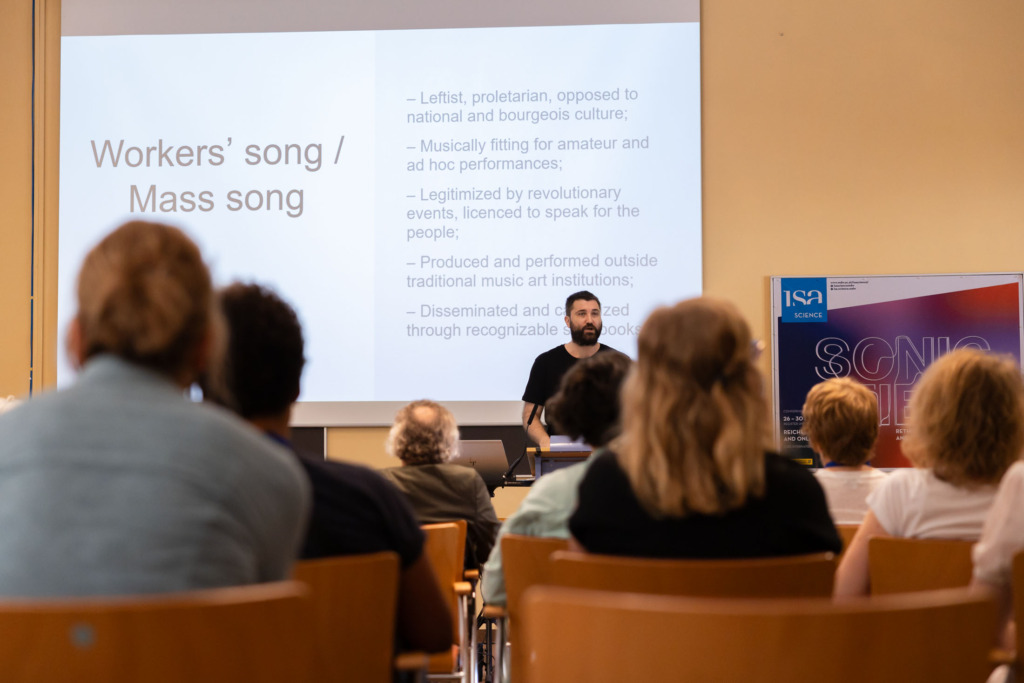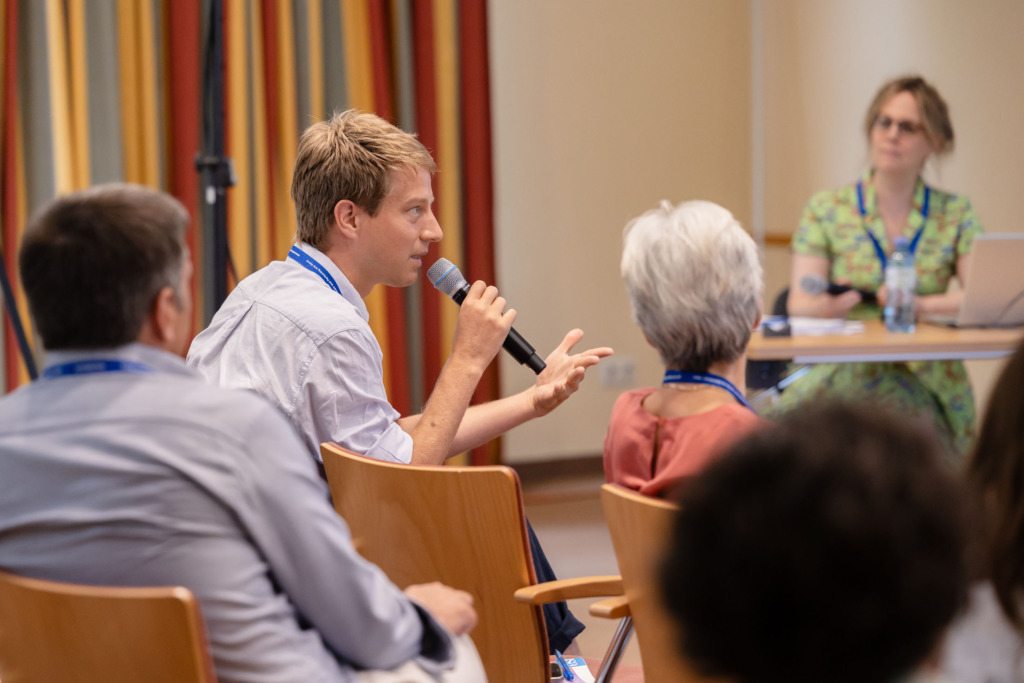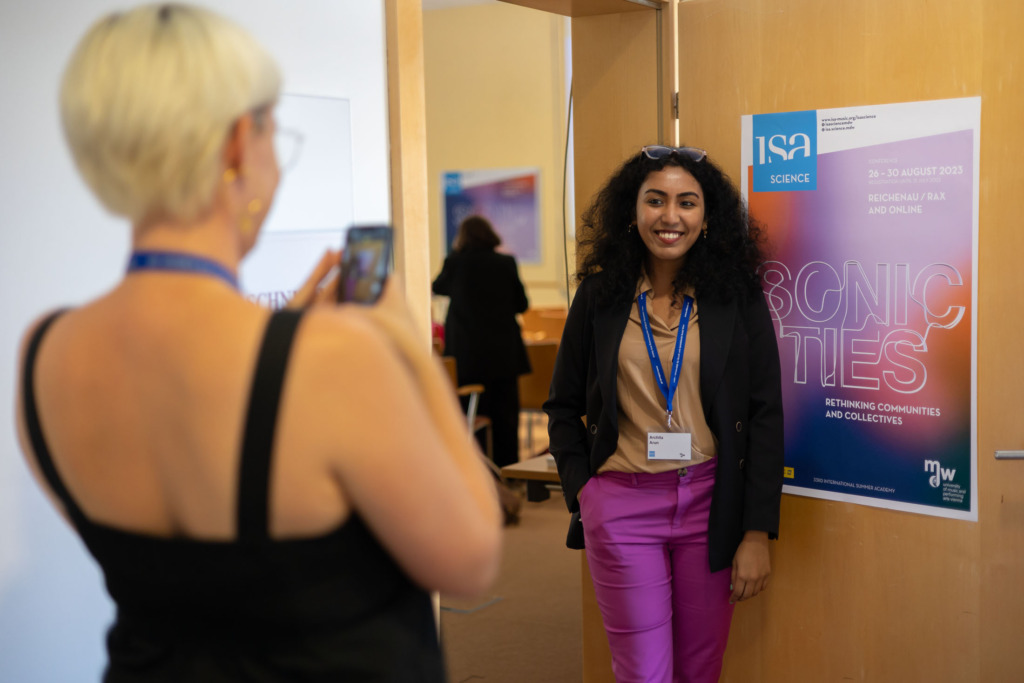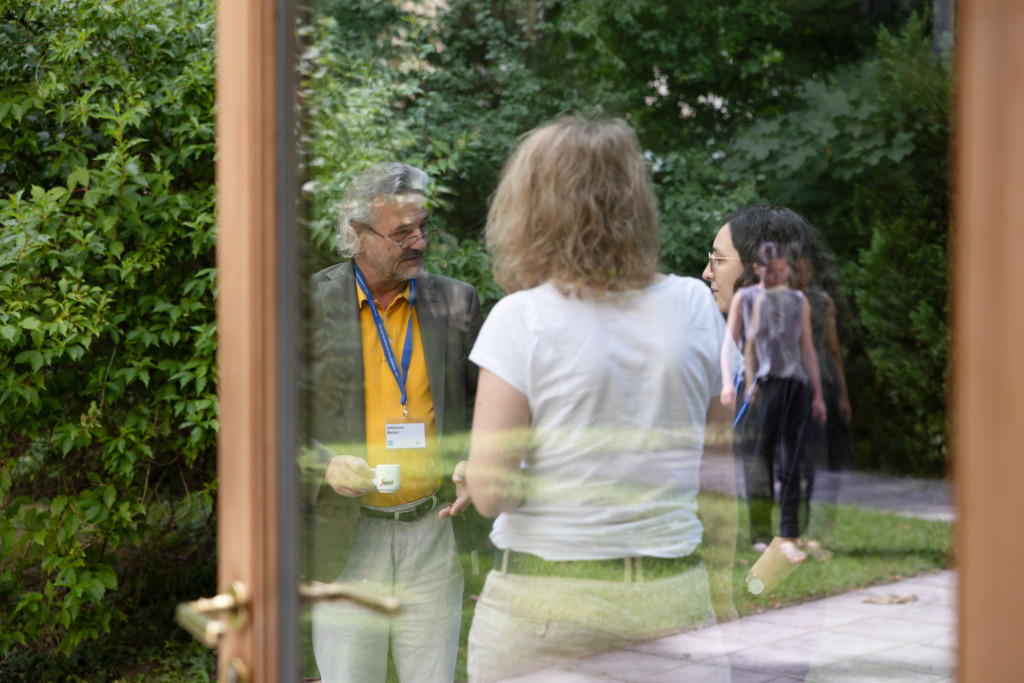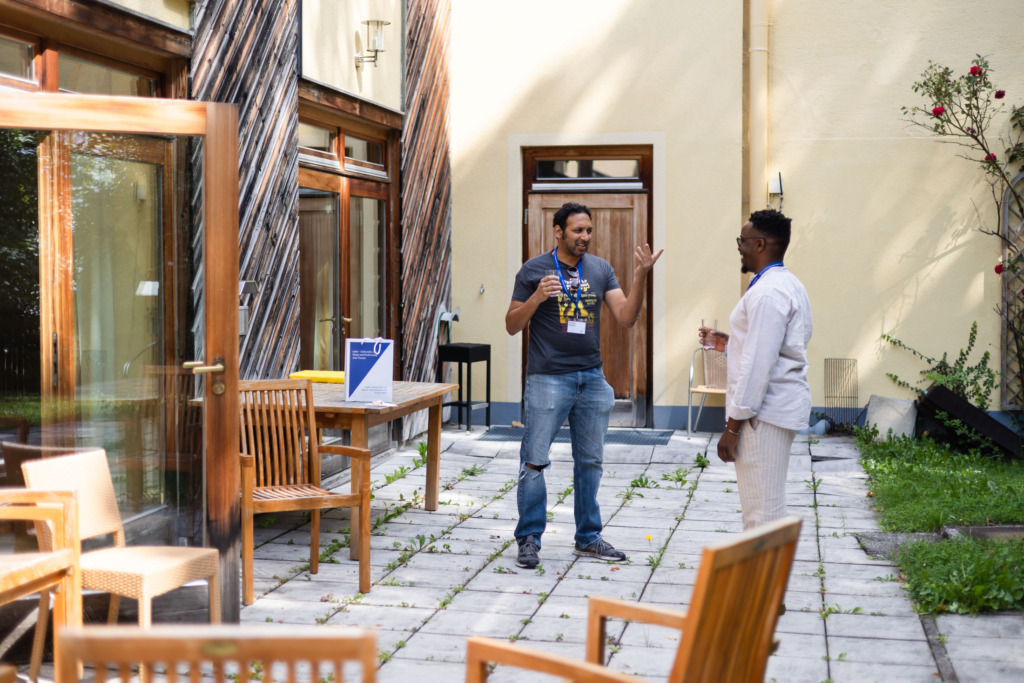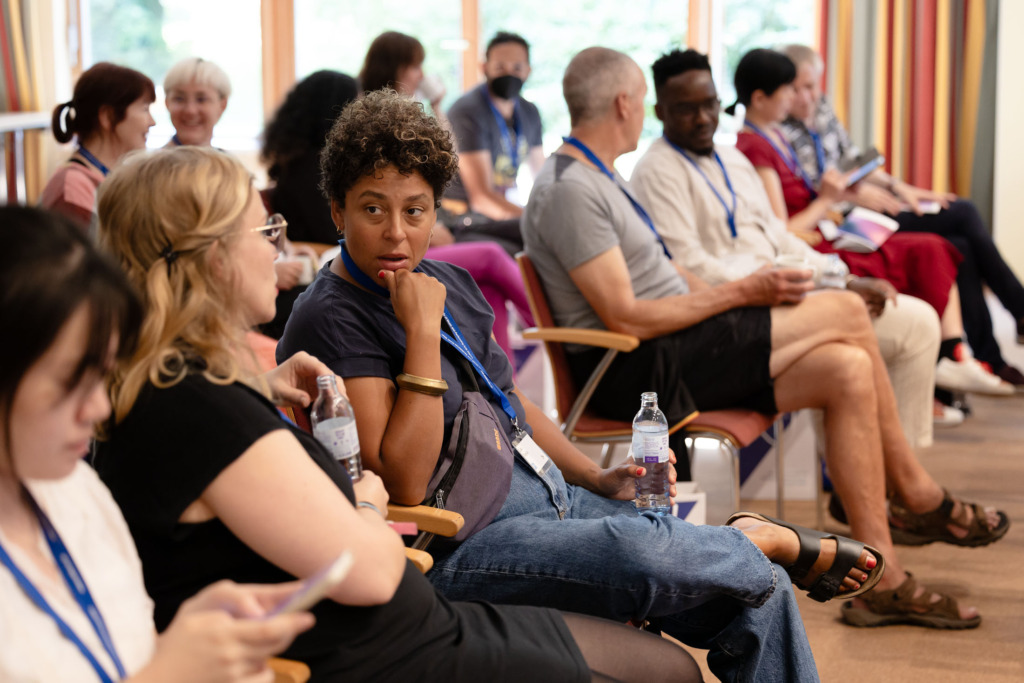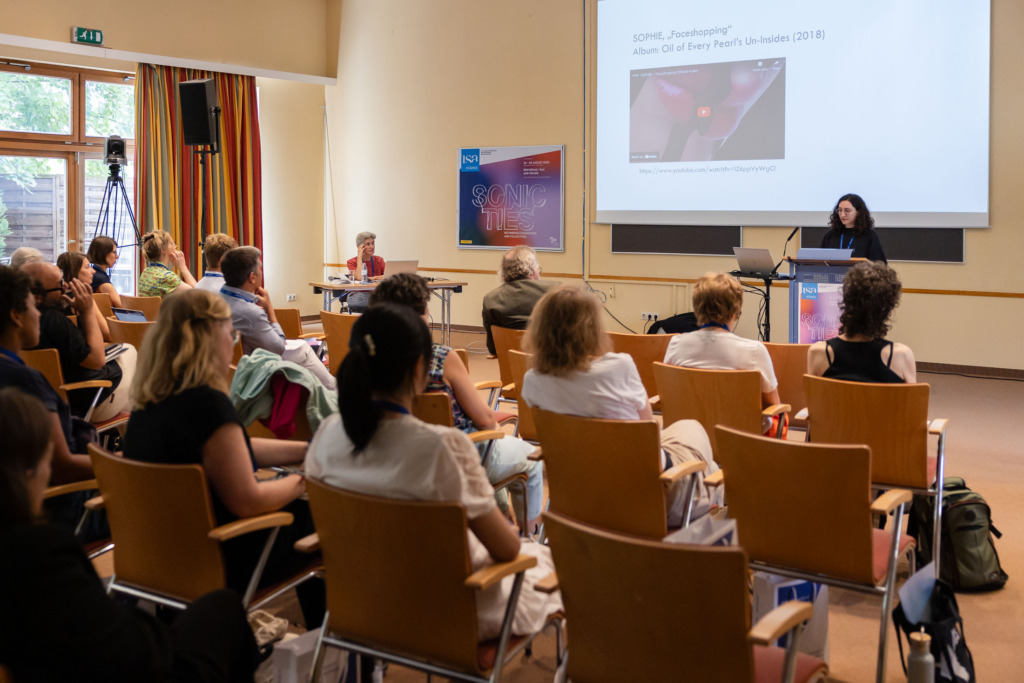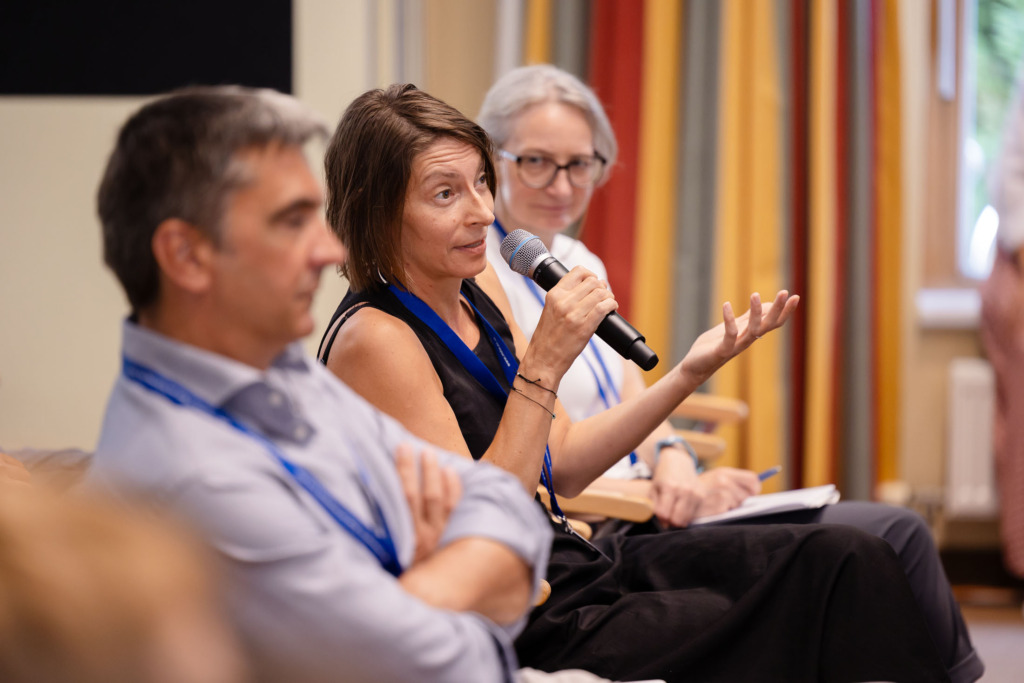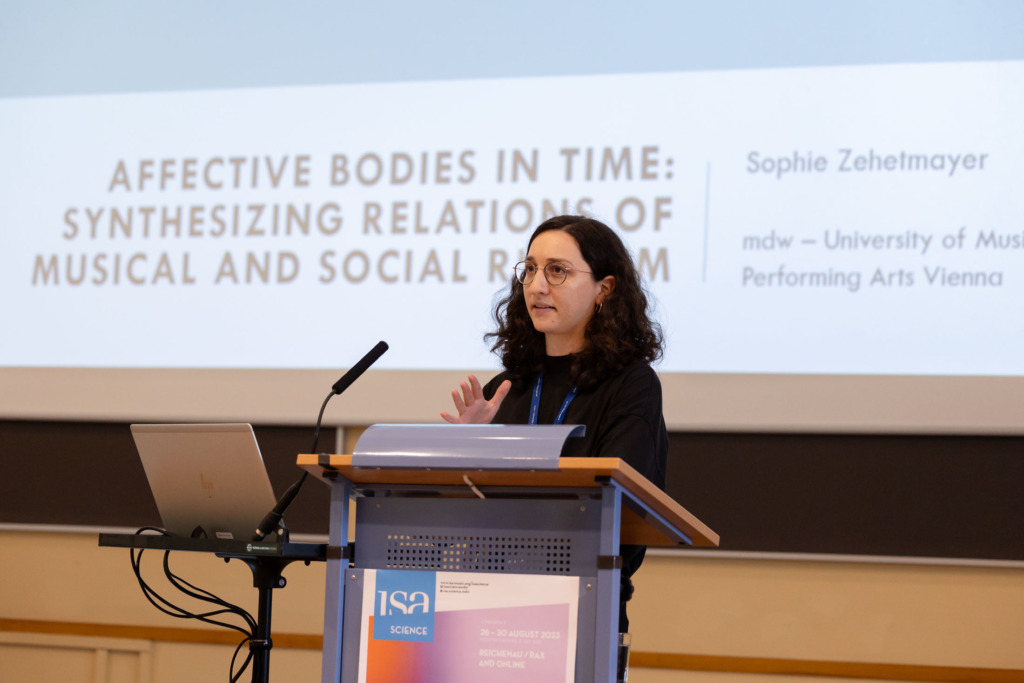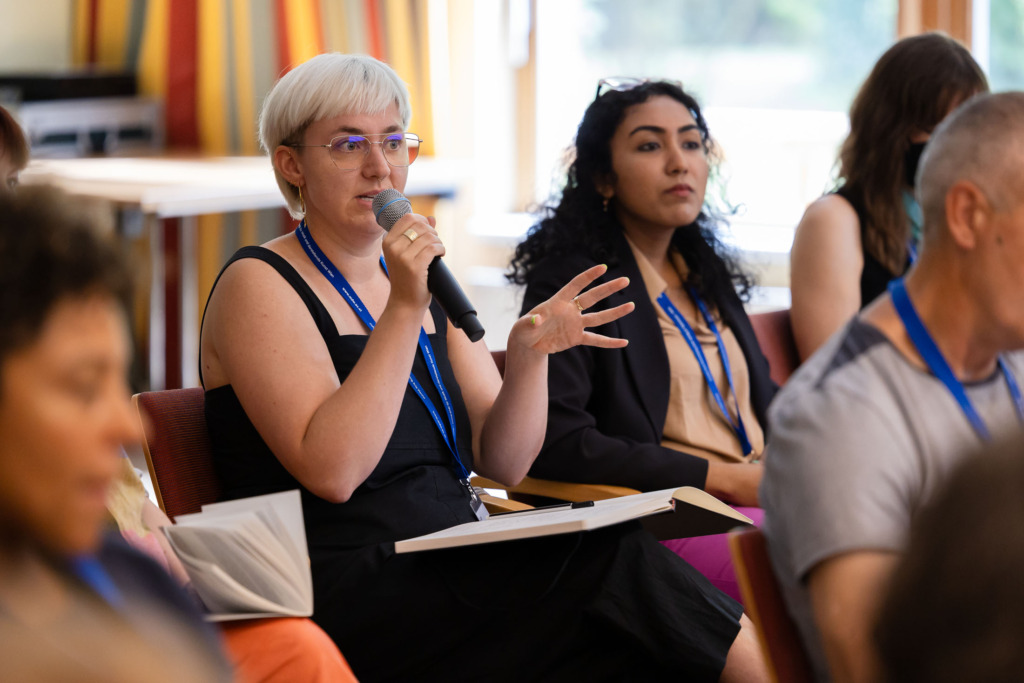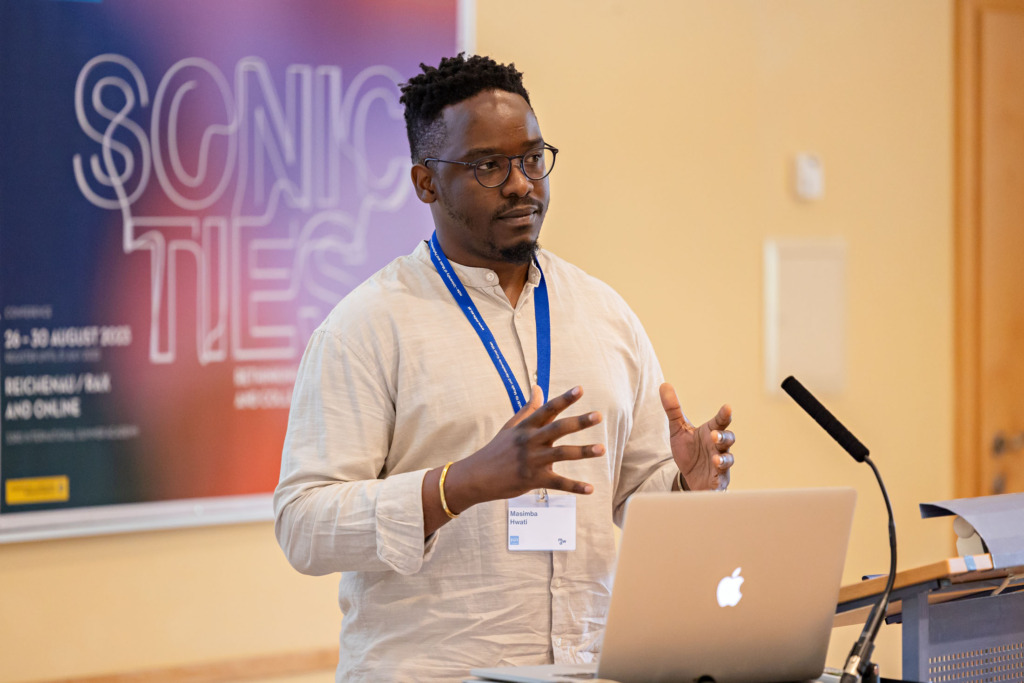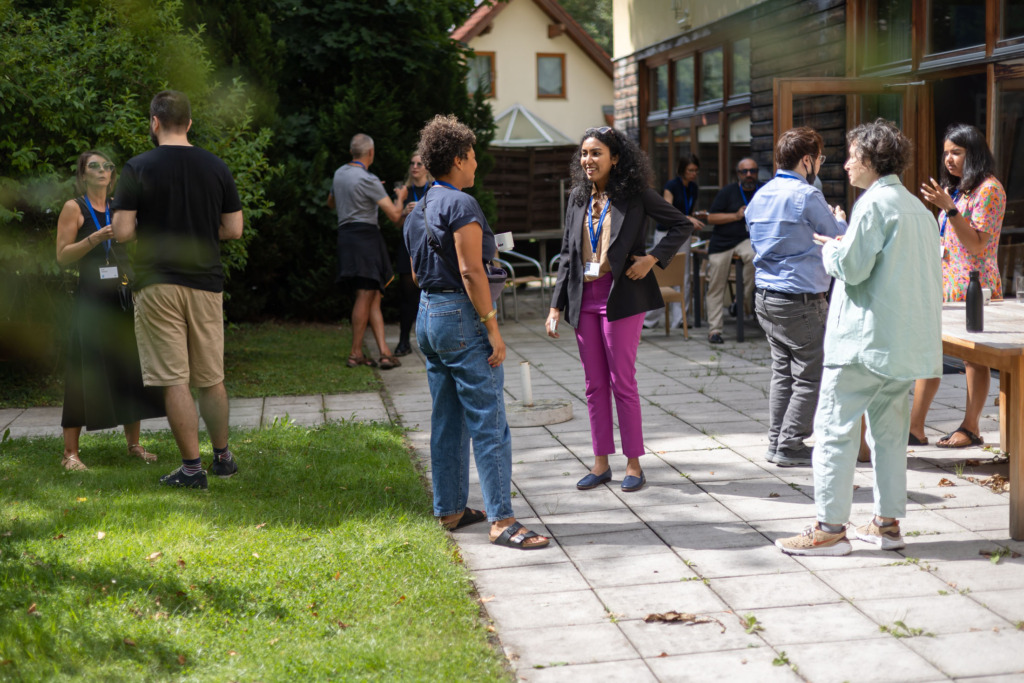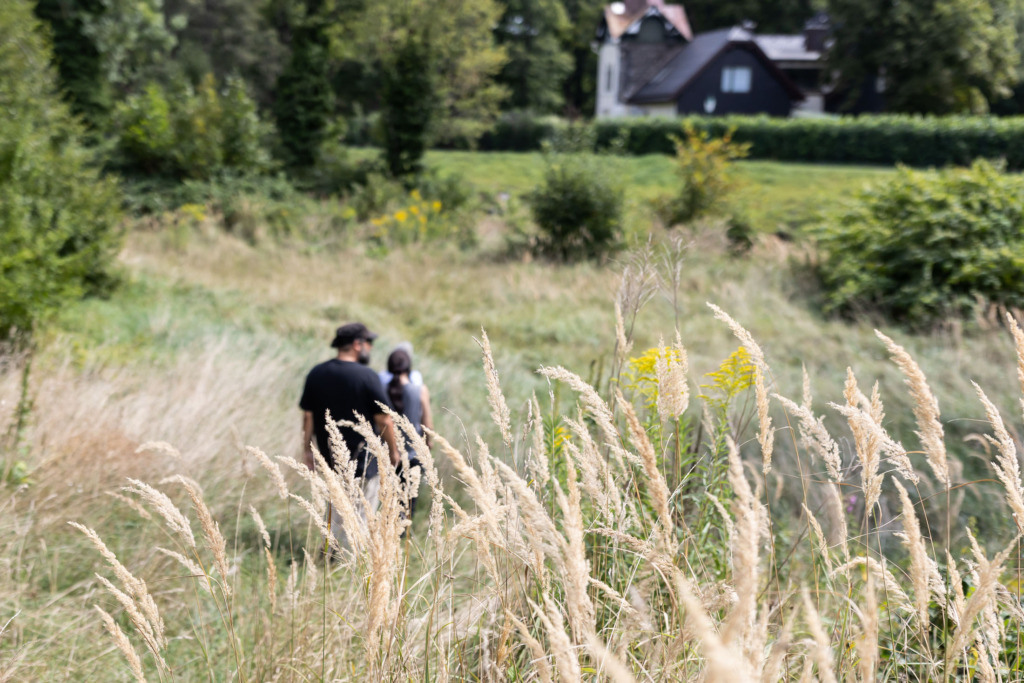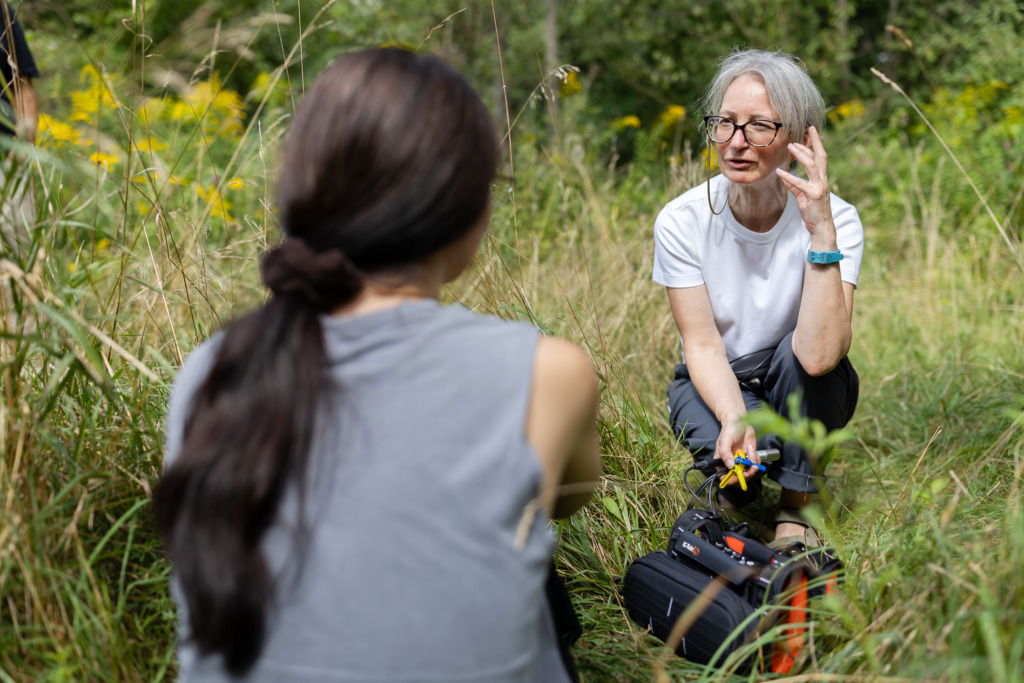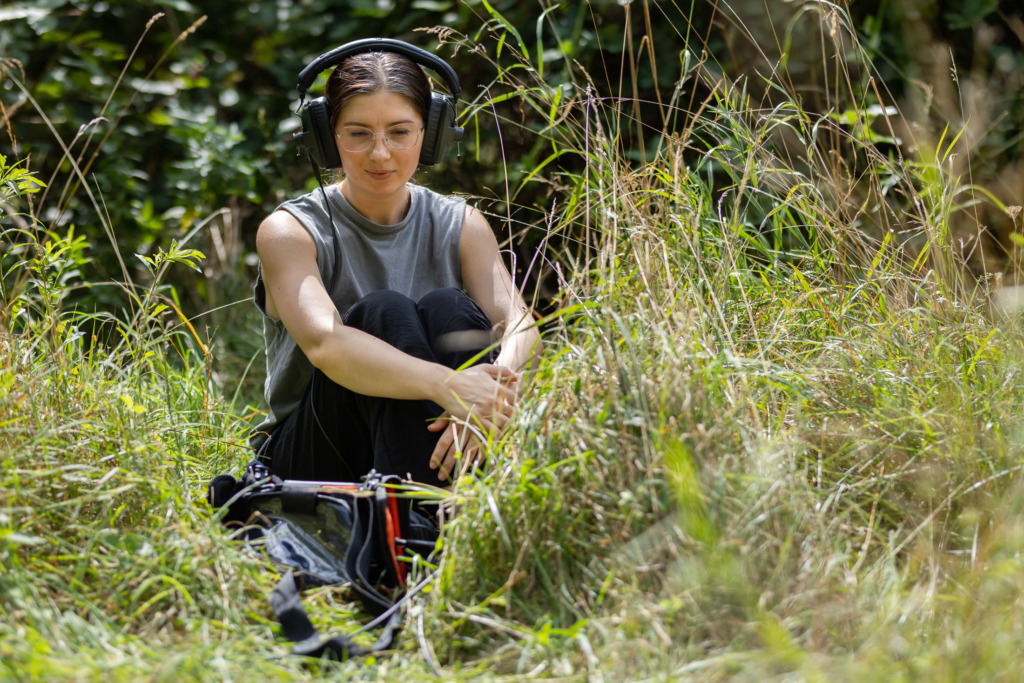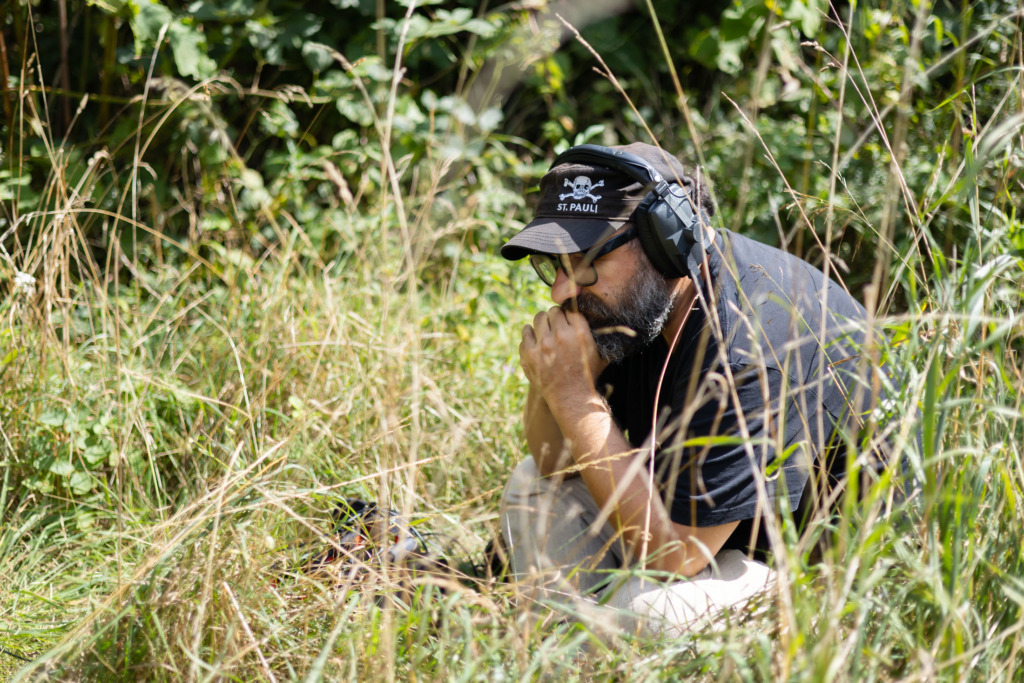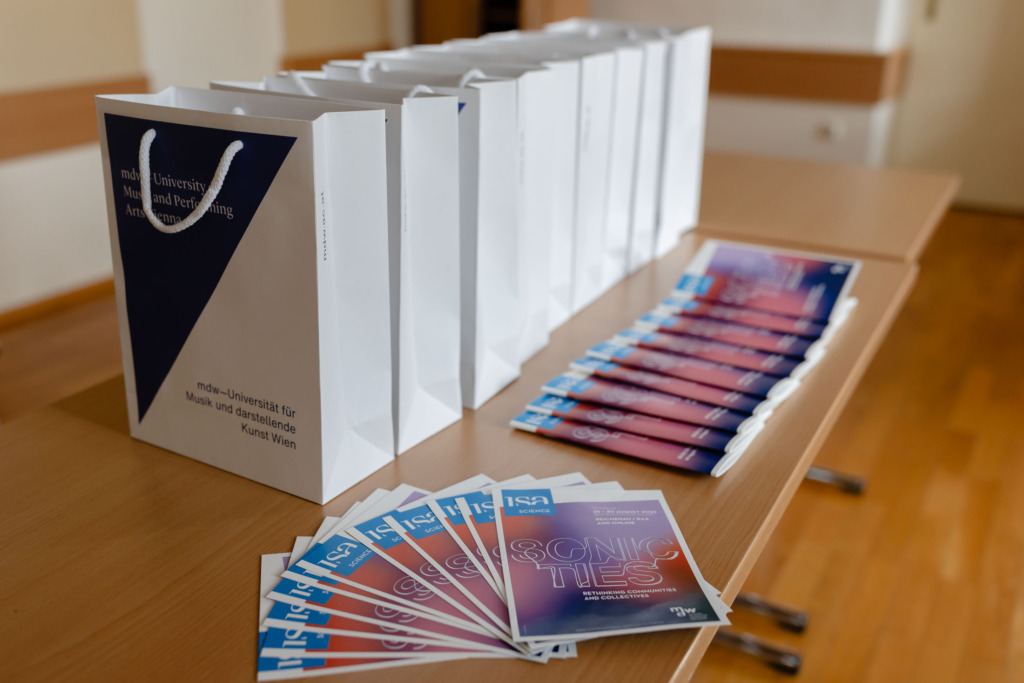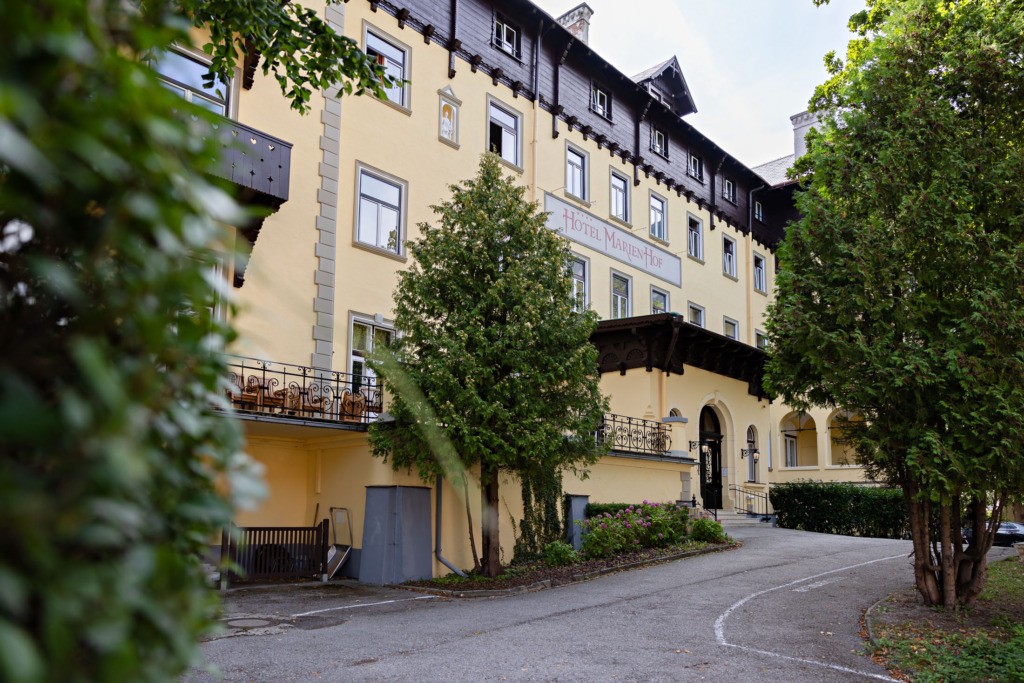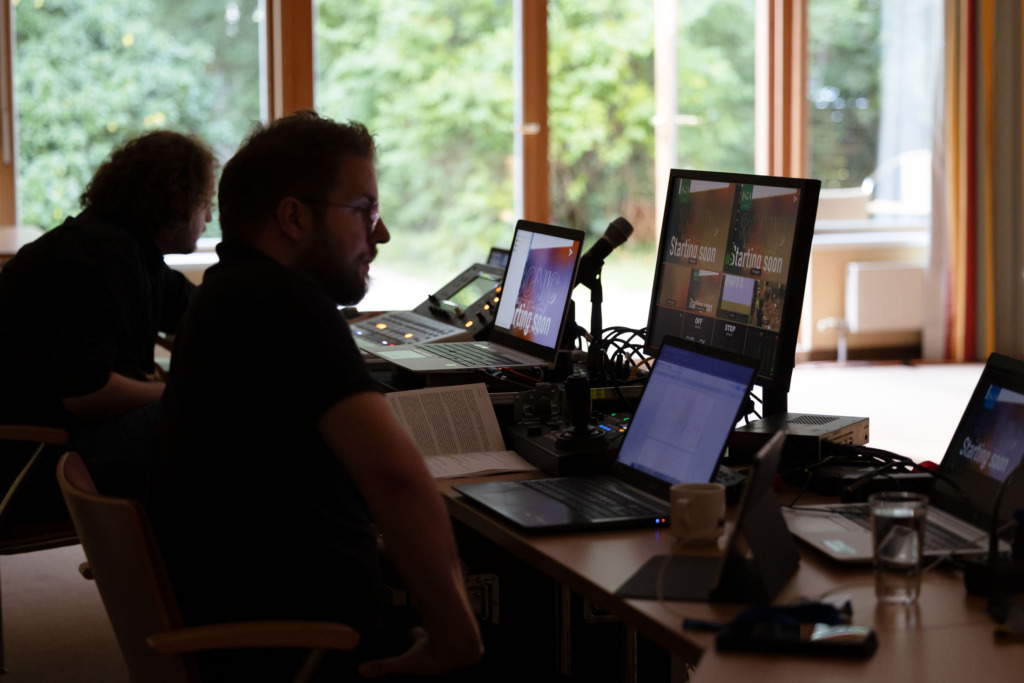isaScience 2023
-
![]() Vice rector of mdw and artistic director of isa Johannes Meissl © Sylvia Faustenhammer
Vice rector of mdw and artistic director of isa Johannes Meissl © Sylvia Faustenhammer
-
![]() Academic board members Stephanie Probst, Andrea Glauser, Marko Kölbl © Sylvia Faustenhammer
Academic board members Stephanie Probst, Andrea Glauser, Marko Kölbl © Sylvia Faustenhammer
-
![]() Therese Kaufmann, head of the research support unit © Sylvia Faustenhammer
Therese Kaufmann, head of the research support unit © Sylvia Faustenhammer
-
![]() Andrea Glauser, academic board member © Sylvia Faustenhammer
Andrea Glauser, academic board member © Sylvia Faustenhammer
-
![]() isaScience 2023 © Sylvia Faustenhammer
isaScience 2023 © Sylvia Faustenhammer
-
![]() Marko Kölbl, academic board member © Sylvia Faustenhammer
Marko Kölbl, academic board member © Sylvia Faustenhammer
-
![]() isaScience 2023 © Sylvia Faustenhammer
isaScience 2023 © Sylvia Faustenhammer
-
![]() Keynote Lecture by Srđan Atanasovski © Sylvia Faustenhammer
Keynote Lecture by Srđan Atanasovski © Sylvia Faustenhammer
-
![]() isaScience 2023 © Sylvia Faustenhammer
isaScience 2023 © Sylvia Faustenhammer
-
![]() Keynote Lecture by Srđan Atanasovski © Sylvia Faustenhammer
Keynote Lecture by Srđan Atanasovski © Sylvia Faustenhammer
-
![]() isaScience 2023 © Sylvia Faustenhammer
isaScience 2023 © Sylvia Faustenhammer
-
![]() isaScience 2023 © Sylvia Faustenhammer
isaScience 2023 © Sylvia Faustenhammer
-
![]() isaScience 2023 © Sylvia Faustenhammer
isaScience 2023 © Sylvia Faustenhammer
-
![]() isaScience 2023 © Sylvia Faustenhammer
isaScience 2023 © Sylvia Faustenhammer
-
![]() isaScience 2023 © Sylvia Faustenhammer
isaScience 2023 © Sylvia Faustenhammer
-
![]() isaScience 2023 © Sylvia Faustenhammer
isaScience 2023 © Sylvia Faustenhammer
-
![]() isaScience 2023 © Sylvia Faustenhammer
isaScience 2023 © Sylvia Faustenhammer
-
![]() Lecture by Sophie Zehetmayer © Sylvia Faustenhammer
Lecture by Sophie Zehetmayer © Sylvia Faustenhammer
-
![]() isaScience 2023 © Sylvia Faustenhammer
isaScience 2023 © Sylvia Faustenhammer
-
![]() Lecture by Masimba Hwati © Sylvia Faustenhammer
Lecture by Masimba Hwati © Sylvia Faustenhammer
-
![]() isaScience 2023 © Sylvia Faustenhammer
isaScience 2023 © Sylvia Faustenhammer
-
![]() isaScience 2023 © Sylvia Faustenhammer
isaScience 2023 © Sylvia Faustenhammer
-
![]() Listening Session by Michelle Atherton © Sylvia Faustenhammer
Listening Session by Michelle Atherton © Sylvia Faustenhammer
-
![]()
-
![]() isaScience 2023 © Sylvia Faustenhammer
isaScience 2023 © Sylvia Faustenhammer
-
![]() isaScience 2023 © Sylvia Faustenhammer
isaScience 2023 © Sylvia Faustenhammer
-
![]() isaScience 2023 © Sylvia Faustenhammer
isaScience 2023 © Sylvia Faustenhammer
-
![]() isaScience 2023 © Sylvia Faustenhammer
isaScience 2023 © Sylvia Faustenhammer

